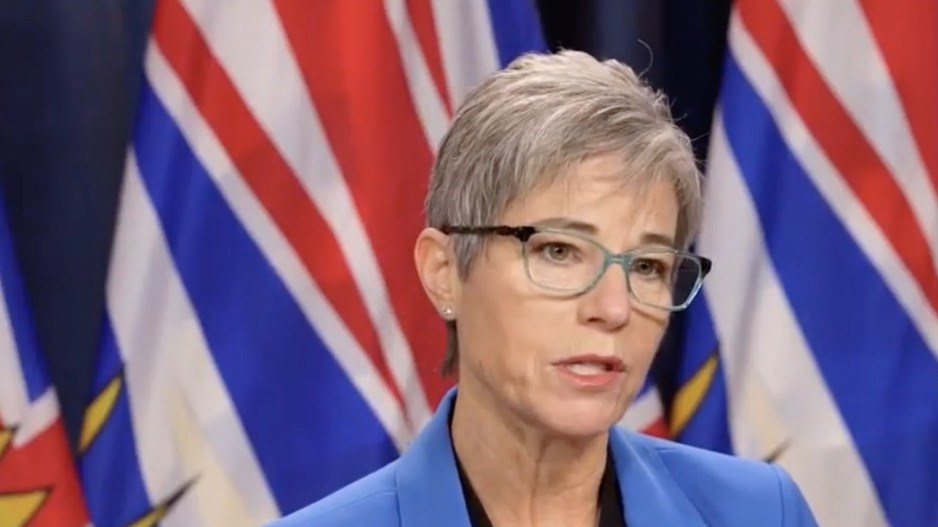The provincial deficit for 2021-22 is now projected to come in at just $1.7 billion – $3.1 billion less than forecast in the province’s first quarterly report for 2021, thanks to strong economic recovery.
But B.C. finances now face a new strain: the impact of flooding on B.C.’s highway system and economy.
In a second quarter 2021-22 financial update, B.C.’s ministry of Finance said the provincial deficit is now estimated at $1.7 billion for 2021-22, compared with the $9.7 billion deficit originally estimated, and $4.8 billion estimated in the first quarterly financial report.
The lower deficit is attributed to “higher-than-expected revenue from personal and corporate income taxes, increased activity in the retail and housing sectors, strong resource revenues and commercial Crown net income.”
Government revenues are expected to be $3.1 billion higher than originally forecast for budget 2021-22. Personal income tax revenue is up nearly $1 billion – $912 million. Another $1 billion increase comes from higher commodity prices and higher incomes from ICBC and the BC Lottery Corporation.
However, all that good economic news is tempered by the fact that B.C.’s economy no sooner had begun to recover from the impacts of the pandemic than it was hit with flooding. The scale of the damage and cost of repairs cannot even be guessed at yet.
“There continues to be significant uncertainty about the rest of the year, especially considering still-to-be-determined impacts of flooding and extreme weather events and the ongoing COVID-19 pandemic as many areas of the world continue to experience outbreaks,” the Ministry of Finance said in a news release.
“Higher inflation, increased strain on supply chains and other associated pandemic impacts, which could be worsened by the recent flooding, will also continue to affect economic recovery.”
"The future remains uncertain, and we will continue to do what is needed to support people through the challenges we face as a province, whether that is the continued effects of a global pandemic or the response and recovery from the recent extreme weather," said Finance Minister Selina Robinson.
Labour Force Survey data for October confirms B.C. continues to lead the country in job recovery, with 10,400 jobs added that month, and private-sector forecasters expect B.C. to also lead in GDP growth.
While taxes and royalties from oil and gas and mining are up, the finance ministry acknowledges revenue from forestry can be expected to decline, thanks to new forestry policies, like moratoria being placed on old growth.
"The impacts of the deferrals of harvesting in old-growth forests is expected to reduce revenue by $50 million," the report states.




